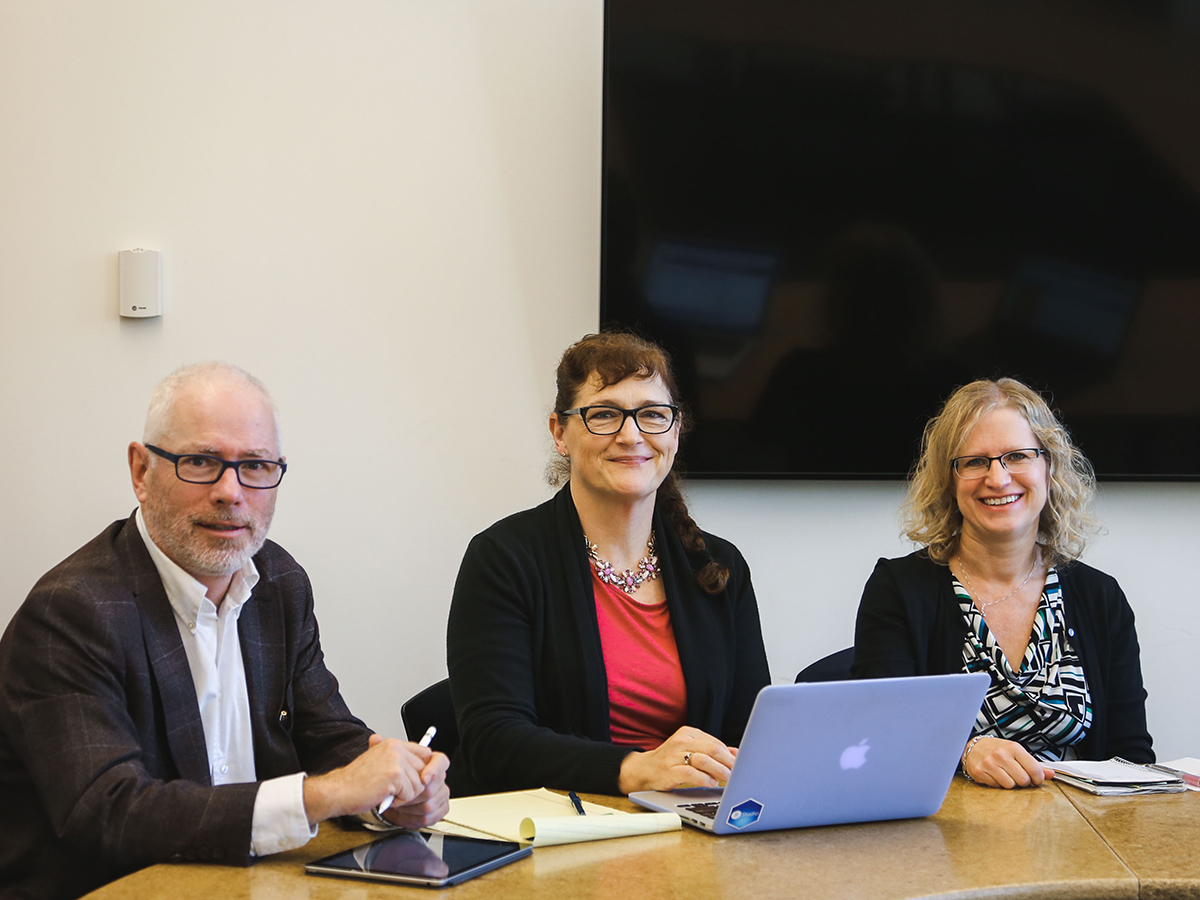St. Olaf receives nearly $1 million NSF grant for new dataSTEM project

St. Olaf College has been awarded nearly $1 million from the National Science Foundation (NSF) to support low-income STEM students as they gain advanced skills and expertise in data analysis.

The project, titled “dataSTEM: Preparing academically talented, low-income STEM students for our data-intensive world,” provides scholarships and critical support to 30 low-income students who will augment their STEM majors with advanced capacities in data science and statistics. NSF awarded the college a $991,956 grant to support the project.
“At St. Olaf, our research has shown that a lack of facility with data-intensive questions is one barrier to completion of a STEM major. We’ve also documented a strong and unfortunate correlation between family income levels and persistence in data-intensive courses,” says Professor of Mathematics, Statistics, and Computer Science Matt Richey, one of the dataSTEM project leaders. “Once academically talented, low-income students cultivate or expand their quantitative competency, academic and career possibilities open up that they did not imagine for themselves.”
The project will recruit students during their first year of college and support them for up to three years. In addition to scholarships of up to $7,000 per year, a key component is a new course to bridge the gap between the traditional, social science-based initial course in statistics and an initial course in statistical modeling. The new course will introduce students to statistical computing and the core principles of data science as they access and analyze real data to answer compelling questions.
“To increase the number of STEM majors from low-income and underserved groups, we must better understand and serve those who indicate a reluctance to pursue STEM degrees.” — Associate Dean for Natural Sciences and Mathematics Mary Walczak
In addition to providing supplemental instruction and tutoring, the dataSTEM project coordinates with St. Olaf’s highly regarded TRIO programs and with its nationally recognized Center for Interdisciplinary Research. Faculty from disciplines outside mathematical sciences will mentor dataSTEM participants to analyze large datasets. The project also takes advantage of St. Olaf’s 10g campus cyberinfrastructure. An advisory board representing area industries will identify internship opportunities for dataSTEM participants and will support entry into data-intensive careers after graduation.

In addition to Richey, the dataSTEM leadership team consists of Associate Professor of Statistics and Education Sharon Lane-Getaz, Professor of Statistics Julie Legler, Director of Advising and Academic Support Kathy Glampe ’92, Student Support Services Academic Advisor Tenzin Choerap ’10, and Associate Dean for Natural Sciences and Mathematics and Professor of Chemistry Mary Walczak. This team oversees program implementation, including recruitment, selection, and retention of participants. Choerap was a participant in the St. Olaf’s first S-STEM project, which began in 2006.
The dataSTEM project builds on the success of previous S-STEM projects in mathematics, biology, and chemistry at St. Olaf. It will test and refine instruction and academic support intended to increase persistence in data-intensive STEM fields. The findings of the dataSTEM project will contribute to the national conversation about how best to challenge and support students from underserved backgrounds.
“To increase the number of STEM majors from low-income and underserved groups, we must better understand and serve those who indicate a reluctance to pursue STEM degrees,” Walczak says. “St. Olaf is well situated to meet this challenge. Our extensive and effective support for low-income and underserved students combines with nationally recognized STEM programs, particularly in mathematics and statistics. We are delighted to receive this NSF grant to support the dataSTEM project.”